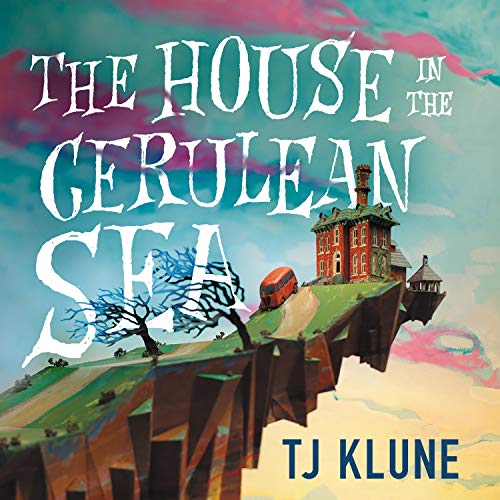Book Club’s first read reveals magic potential in ‘ordinary’ places

“Regardless of what else he is, he is still a child, as they all are. And don’t all children deserve to be protected? To be loved and nurtured so that they may grow and shape the world to make it a better place?”
The House on The Cerulean Sea is urban fantasy published in 2020 by TJ Klune set in a world with magical people who are separated from non-magical people from a young age. They are either put in orphanages or schools designed for magical people, and the main character, Linus Baker, is a caseworker for the Department in Charge of Magical Youth or DICOMY that reviews if orphanages need to be closed. Linus lives a boring life and has resigned himself to loneliness, until he gets a highly unusual classified case. He is assigned to investigate Marsyas Island Orphanage, which is home to six dangerous and extraordinary children and a mysterious but charming man that houses them. What he experiences on the island changes everything.
This book is the definition of charming with its witty lines, thought-provoking speeches, characters you can’t find every day and gorgeous sensory details that ask, “Don’t you wish you were here?” Today when students are daunted by the prospect of a lonely dull future and are constantly hearing about hate for kids like them and their friends, here instead is a book about finding the magical in the ordinary and the humanity of all children big and small.
As TJ Klune said in a interview with The Hub, “I think there’s something not only topical about the story, but also universal in its messaging. Fantasy is often filled with grim, dark stories (absolutely nothing wrong with that!), and we don’t get to see a lot of ‘happy’ fantasy these days. I wanted to write a story that reminded me of the cozy fantasies I read as a kid—books that not only made me happy, but allowed me to believe everything could be OK. Hope can often seem like it’s in short supply these days, and while a novel like The House in the Cerulean Sea won’t fix the world’s problems, I hope it can at least serve as a small reminder that we are capable of so much when we stand for what we believe in and lift each other up.”
There is some controversy surrounding the book because the author has stated that the story is partially inspired by the Sixties Scoop, a time between the 1950s and 1980s in Canada where Indigenous children were put in residential schools and adopted into White families. Klune has stated that he had the faint idea of the story beforehand and then hearing that helped him form it more, as well as other instances of children being separated from their families in history and the modern day. Some people feel as if it is overshadowing the horror of the Sixties Scoop by using the concept for a heartwarming story, and for as long as there has been stories where fantastical beings are metaphors for oppressed people there has been the debate about if that metaphor is dehumanizing. There are some aspects of the children in the book that are dangerous, but in real life the indigeous children and all kids taken away from their families because of ethnicity are harmless. Although the characters in this book feel very human, relating real oppressed people to fantastical characters could lead to people not completely seeing oppressed people as normal people like them.
Personally, I can respect this argument, but I feel that this story is a good (but not perfect) metaphor that can help people young and old learn empathy for people different from them, and as someone that is from multiple oppressed groups, I felt seen by the characters and how magical people are treated. This book was the book of the month for the CFHS book club, and you can find it under the fantasy section in our school’s library.









You must be logged in to post a comment Login